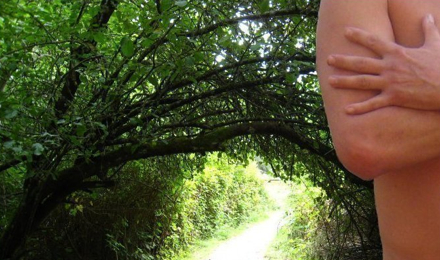
The poemography is about the archetype of Animus [see Photo Essay]. The archetypes of Anima and Animus are, in Carl Gustav Jung’s Depth Psychology, components of the unconscious of an individual. In the unconscious of the female, it finds expression as a masculine inner personality or Animus, and in the unconscious of the male, it is expressed as a feminine inner personality or Anima. One might look at the concept of anima-animus as a kind of yin/yang solution to the duality of human sexuality. They are products of the long human experience of woman with man and man with woman: as woman has opened to her masculine nature, so has man a corresponding female side. A woman apprehends the nature of man by virtue of her hidden Animus – and reciprocating, the man is able to grasp the nature of femaleness via his Anima. The psychological path of individuation or the process of maturation of the psyche involves becoming conscious of various components of our psyche, such as the Shadow (our dark side) and the Animus (or Anima in case of men.). This poemography aims at describing a fictional journey of getting to know and tame and integrate the Animus into one’s conscious self, as part of the process of individuation. The photographed man is Michael Montgomery Ward, a professional Art model.
Taming my Animus
Once upon a dream, a stream of senses surges in my bone
I feel a danger, a stranger chasing me in a forest unknown.
I waken and know it is you, my spirit, inner man
imprinted in my soul.
If possessed by you, your rigid voice of irrational lore
becomes the law of my world. Thus knowing you
and taming your bents is the key to my wholeness.
I begin with a call, the building of a temple filled
with my verve, a wish for your presence.
You come into the laughing light of my site, childlike
and whimsical, playing treasure hunt games, brightening
soft grass of my mind’s meadow with your silver glow.
Panting for the pearls of your heart-shaped find,
you promise to give me your ears over years.
Then one day, your eye plucks fictions from the fruited
Tree of Life, and on the stem of your body my imagination
blossoms. I lay behind you, whispering, painting a splendid canvas
of the world. You give me a lone cherry without a stone out
of the unknown, I fall head over heels in love
with someone looking fun like you.
When I live the dance of relationship, I see life pregnant with promise and boundless potential, only to turn breathless and blue, noting the man I loved was only you, yes he was you.
Confronting my shadow was an apprentice-piece;
is confronting you a masterpiece?
When I seek the answer to my question, I have a dream of transformation; I see you as a panther, tamed by my new wisdom.
We leave the home of our roots for a better weave and you heave
me into taking chances, diving into sea of romances
and swimming across the waves of trances.
We come out of our adventure exhausted, yet satisfied. We
dry ourselves in the sun and I look at you. A melange of my father’s abstracts, my brothers’ adventures, my teachers’ poise.
We eye the landscape and sigh,
as we can’t bring back forest trees under attack
from loggers who don’t care jack.
You seize the silence of the birds and offer it to me
for the funeral of the forest.
I teach you a late mode of meditation,
a Gaia form of yoga, and help you be an Ecotopian,
a green steward of Mother-Earth.
You become an alchemist, turning grudging grapes into sweet wassail wine; your hands point to the conference of the birds and complexities of the moon beyond logic and lust. You are thus a wise man hunched over the Book of Death.
And only then, when you stand subdued in the serenity of my domain, that my kisses bring again, bring again, seals of love,
not in vain, not in vain.(*)
(*) The last two verses are reversals of Shakespeare’s in Measure for Measure, Act IV, Scene I:
“But my kisses bring again, bring again;
Seals of love, but sealed in vain, sealed in vain.”






